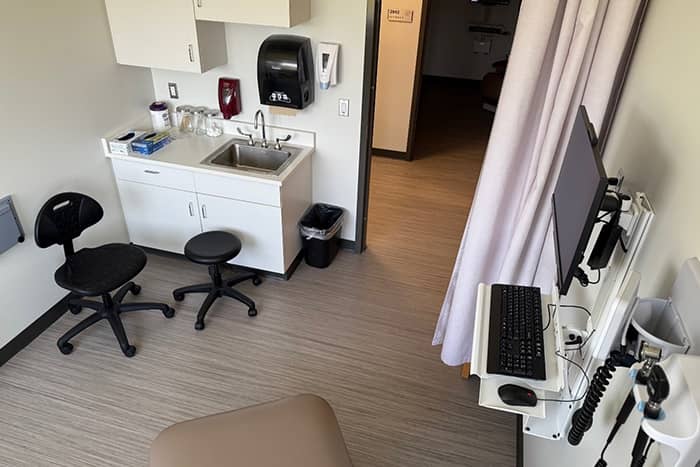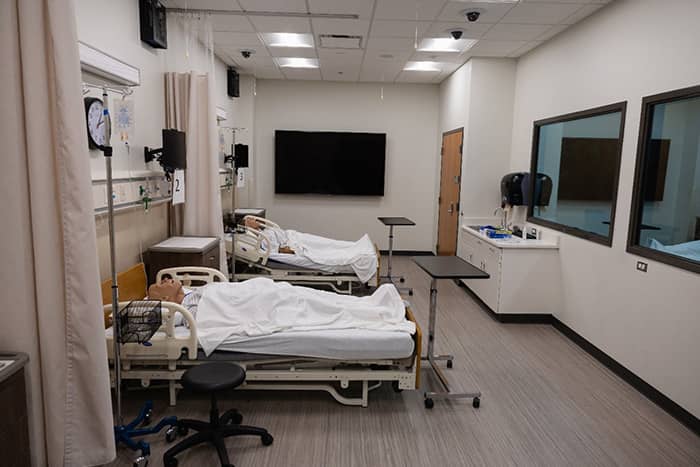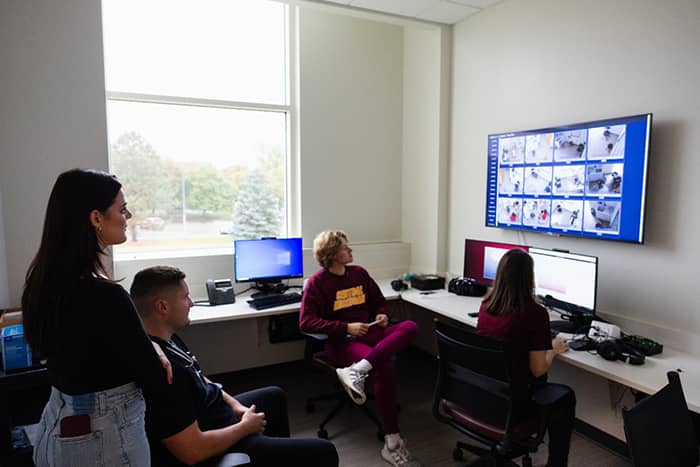IPEP Facilities
The Interprofessional and Education Practice (IPEP) Center is equipped with examination rooms, high fidelity simulation rooms, control rooms, and a debriefing room to provide students with a robust experience utilizing standardized patients and simulation models..
Examination rooms
There are eight simulation rooms, designed to resemble a clinical exam room. It features essential medical equipment, including a handwashing station, gloves, and diagnostic tools with a mounted computer. The room provides a realistic setting for students to practice patient care skills in a controlled environment. The rooms are flexible and can be tailored to accommodate the needs of all departments within the College of Health Professions.

High fidelity simulation rooms
This high-fidelity simulation room features three patient beds, IV poles, vital sign monitors, and one-way glass for observation. It is one of two large simulation spaces designed for versatility. It can accommodate the needs of all departments and is equipped with advanced technology for realist clinical training and practice. The space is ideal for interprofessional education (IPE) simulations, fostering collaboration between departments and with the College of Medicine. The room's flexibility allows for various healthcare scenarios, enhancing student preparedness for real-world medical environments.

Control rooms
The simulation control rooms provide a dynamic space where standardized patients can act as the voices of high-fidelity simulators, bringing scenarios to life. Faculty members can observe simulations in real-time, allowing them to assess student performance and intervene when necessary. Adjustments to the simulation scenarios can be made on the fly based on student actions, enhancing the adaptability of the training experience. Additionally, the control room setup allows for the simultaneous monitoring of multiple students, making it an efficient tool for large group learning.

Debriefing room
The debriefing room is a critical space in healthcare simulation, where students and faculty come together to reflect on and discuss the scenarios they just completed. It provides a structured environment for reviewing performance, identifying strengths, and discussing areas for improvement. Faculty guide the conversation, offering feedback, and encouraging students to analyze their decision-making processes. This post-simulation discussion helps deepen learning, fostering critical thinking and enhancing clinical skill for real-world practice.